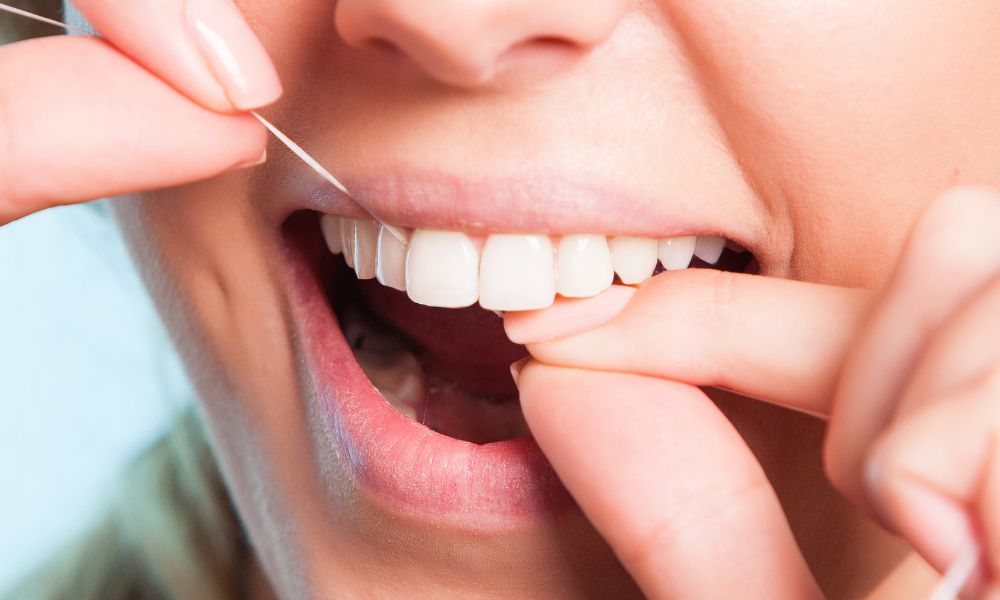Why Do Your Gums Bleed When You Floss Your Teeth?

Flossing is crucial to maintaining healthy teeth and gums, but some people may notice that their gums bleed when they floss. Understanding why your gums bleed when you floss is essential for addressing potential oral health problems. Explore four causes of this common issue so that you can take the appropriate steps to maintain healthy gums.
Infrequent Flossing
If you don’t floss regularly, plaque and bacteria buildup can cause gum inflammation, making your gums tender and more prone to bleeding. Daily flossing removes food particles and bacteria that can lead to gum disease. If you haven’t flossed in a while, it’s normal for your gums to bleed initially. However, the bleeding should stop within a week or two of daily flossing as your gums become healthier.
Improper Flossing Technique
How you floss also plays a significant role in why your gums bleed when you floss your teeth. If you’re too aggressive when flossing or you push the floss too deep into your gums, you might cause them to bleed. Use a gentle back-and-forth motion, not a sawing action, against the gums to remove plaque. Don’t force the floss, as this can damage or injure your gum tissue. If you have any further questions, consult with your dentist to learn the proper flossing technique.
Poor Nutrition
A balanced diet is essential for maintaining healthy gum tissue and overall oral health. Deficiencies of certain vitamins, such as vitamin C or K, can result in bleeding gums. Vitamin C strengthens your gums, while vitamin K helps with blood clotting. Make sure you include plenty of fruits, vegetables, and whole grains in your diet to ensure you’re getting the necessary nutrients.
Bleeding Gums as a Sign of Periodontal Disease
If you experience persistent bleeding even after adopting regular flossing habits and the proper technique, this may indicate periodontal disease (gum disease). Bleeding is one of the earliest signs of gum disease, which occurs when bacteria cause inflammation and infection of the gums. If left untreated, periodontal disease can lead to tooth loss and damage to the bone structure that supports your teeth.
To prevent or treat gum disease, maintain a consistent oral care routine, including brushing twice daily, flossing daily, and visiting your dentist regularly. Your dentist will be able to assess your gum’s health and suggest appropriate treatments for gum disease as needed.
These are a few of the factors that could explain why your gums bleed when you floss your teeth. By understanding these reasons and taking the appropriate measures to improve your oral hygiene, you can prevent bleeding or gum disease. Remember that maintaining healthy teeth and gums is essential for your overall health, so prioritizing your oral hygiene is crucial. If you have any questions about proper dental care or would like to schedule an assessment, learn more about our periodontic services at Gentle Dental Care.